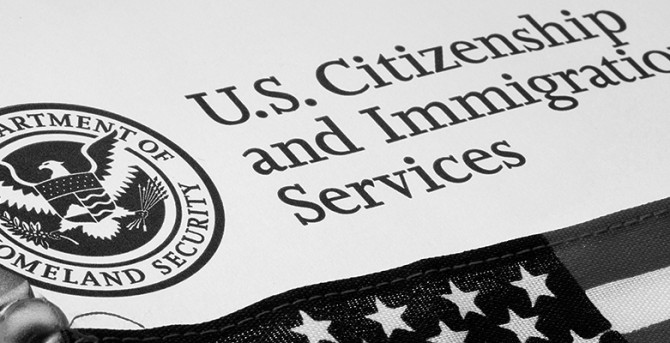Immigration Reform
In the United States, immigration reform is a term used to describe proposals for changes in the law that might serve to decrease illegal immigration while simultaneously increasing legal immigration. For instance, “The Guest Worker” was one such immigration reform proposal backed by former President George W. Bush. Public opinion on immigration reform varies across the spectrum. Some Americans assert that illegal immigrants are stealing their jobs and costing taxpayers millions of dollars. Others suggest that illegal immigrants are a vital part of the economy, as they are willing to work at jobs that most Americans aren’t.
Legal Background
The United States has a long history of immigration reforms. In 1986, The Immigration Reform and Control Act deemed it illegal to both recruit and hire illegal immigrants. However, the hole in the system was that non-immigrant workers did not have a way to enter the country for temporary non-skilled work. After this law was passed, illegal workers still entered the country by the millions. After the 9/11 terrorist attacks, The Border Protection, Anti-Terrorism, and Illegal Immigration Control Act was a bill passed by the United States House of Representatives in 2005. It was followed by the Comprehensive Immigration Reform Act in 2006. However, the proposed changes on either bill never became law because parties involved in negotiations for the laws could not reach an agreement. In recent years, immigration has once again appeared on the political radar, with the Obama administration indicating interest in beginning discussions pertaining to immigration reforms that would help to prevent visa overstays, increase border enforcement, and stop foreign nationals from working without a valid permit, among other changes.

Affected Groups
Both Americans and illegal immigrants will be affected by immigration reforms in the United States. Without knowing which reforms will be made into law in the future, it is difficult to identify specifics. In general, though, it is estimated that immigration law reforms that would make it easier for non-citizens to work in the country for short periods of time, for instance as migrant workers, would increase the gross domestic product (GDP) by $1.5 trillion USD over the next ten years. This reform would also help to increase minimum wages for workers across the country, since employers would no longer be able to hire undocumented workers willing to work for little pay. Added tax revenues would also be generated this way.
Challenges
Across the United States, opinions on immigration reform vary extensively. While most people agree that the current laws must be changed, it is the potential improvements that people can’t agree on. Individuals living in areas where there have been recent increases in the immigrant population tend to politicize against immigrants when the subject comes up in the media. In contrast, persons living in cities where the immigrant population has long been high tend to have more positive views. Anti-immigrant sentiments might cause an individual to push for immigration reforms that make laws for getting into the country tougher and enforcement stricter, while someone who views immigrants more positively is more likely to be in favor of reforms that would make it easier for non-citizens to work in the country.
